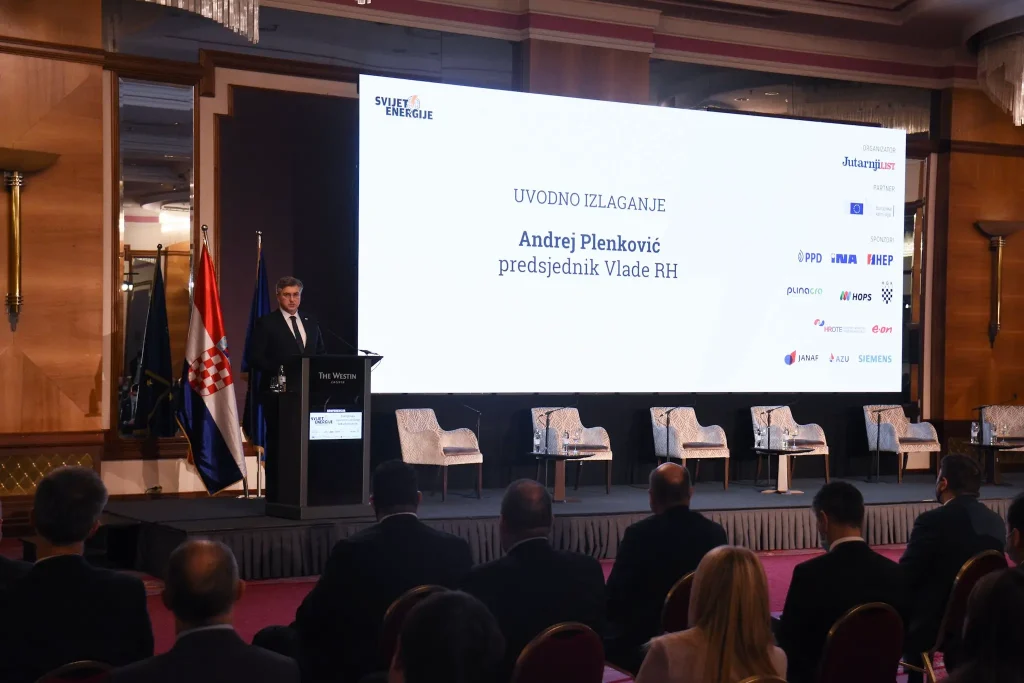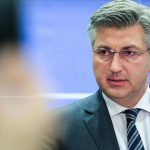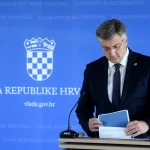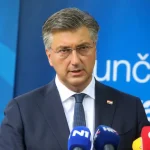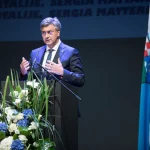“The government is carefully analysing trends in energy prices and the measures other European Union member states are taking. Currently, we are considering all the options that will protect the standard of citizens,” Plenković said at a conference “Energy Security in an Era of Fast Decarbonisation,” organised by the Jutranji List daily.
Recalling that last autumn, the government capped the price of oil products, when it was necessary, Plenković reiterated that the situation is being monitored with regard to the growing prices of electricity and gas.
He said that the government’s activities would be conducted in three segments with the basic aim of relieving the impact on households and citizens.
The first segment is a measure of social transfers with the Prime Minister announcing increased allowances for socially vulnerable citizens. Today that is a maximum allowance of HRK 200 and 64,000 socially vulnerable households will receive vouchers.
“Our plan is to adopt a new regulatory framework to increase the scope of those allowances and expand their implementation to gas besides electricity. We will expand the circle of beneficiaries entitled to those allowances. We will act through all three elements to protect the most vulnerable in society,” said Plenković.
The second part of the package refers to reviewing all elements in the final calculation of the price of gas and electricity. Here we will lean on the important role HEP has as the national energy company which in these circumstances, has the strength to take on some of the burdens, he underscored.
The third element is to review all the elements we have through the taxation system and VAT with the Prime Minister recalled that currently, VAT on electricity is 13% and 25% for gas. “We are preparing a substantial fiscal analysis of impact, we are considering a reduction to buffer the impact on citizens and the economy,” said Plenković.
In his address, he recalled the reasons for the significant energy price hike adding that Croatian citizens did not experience any significant growth in the past period. In the EU the price of energy increased by an average of 30%.
In the context of the global energy crisis, speculation is increasing about the problem of energy supplies while Plenković said that Croatia still has significant domestic production of hydrocarbons and satisfies 20% of its consumption whereas with gas it satisfied 30% of domestic consumption last year.
He underscored the LNG Terminal on Krk island saying that Croatia has secured gas supplies from all parts of the world.
“We recognised the strategic significance of this project for Croatia’s energy independence and to diversify supplies,” he said, adding that the terminal gives Croatia a different dimension on Europe’s energy map.
Last year 21 ships with LNG arrived at the terminal and unloaded about 3 million cubic metres which provided 1.7 billion cubic metres of gas that was handed over to Croatia’s transport system. This year 24 ships are planned.
Croatia has to be ambitious in energy transition
Plenković believes that Croatia has to be ambitious with regard to energy transition and he announced public consultation regarding Croatia’s hydrogen strategy to 2050. He recalled planned investments in solar power plants, new technology, geothermal water, nuclear energy and the Krško nuclear power plant.
He recalled that 37% of the funds from the Recovery and Resilience mechanism is earmarked for green transition and funds will be available from other sources too.
He added that a new EU legislative package foresees the establishment of a social fund for climate policies that would ensure additional funds to relieve the impact of reducing greenhouse emissions. Croatia would have €1.4 billion available which will help citizens finance investments in energy efficiency, new heating and cooling systems and cleaner mobility.
For more, check out our dedicated politics section.

